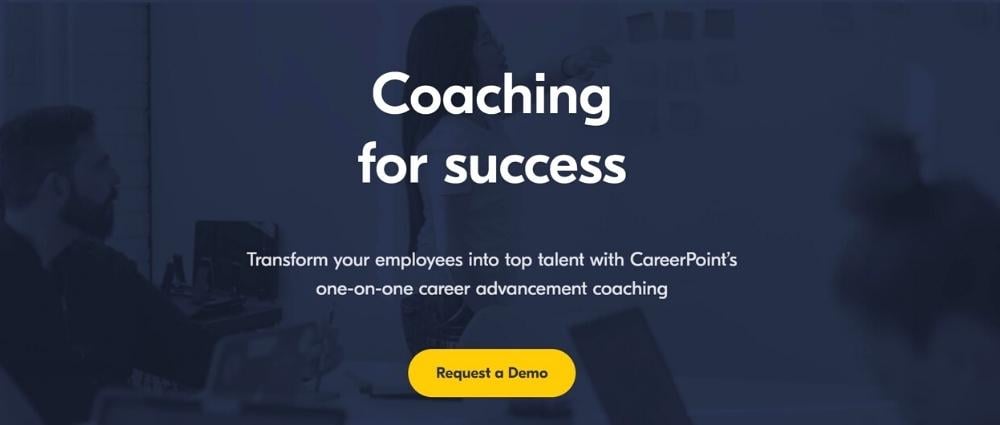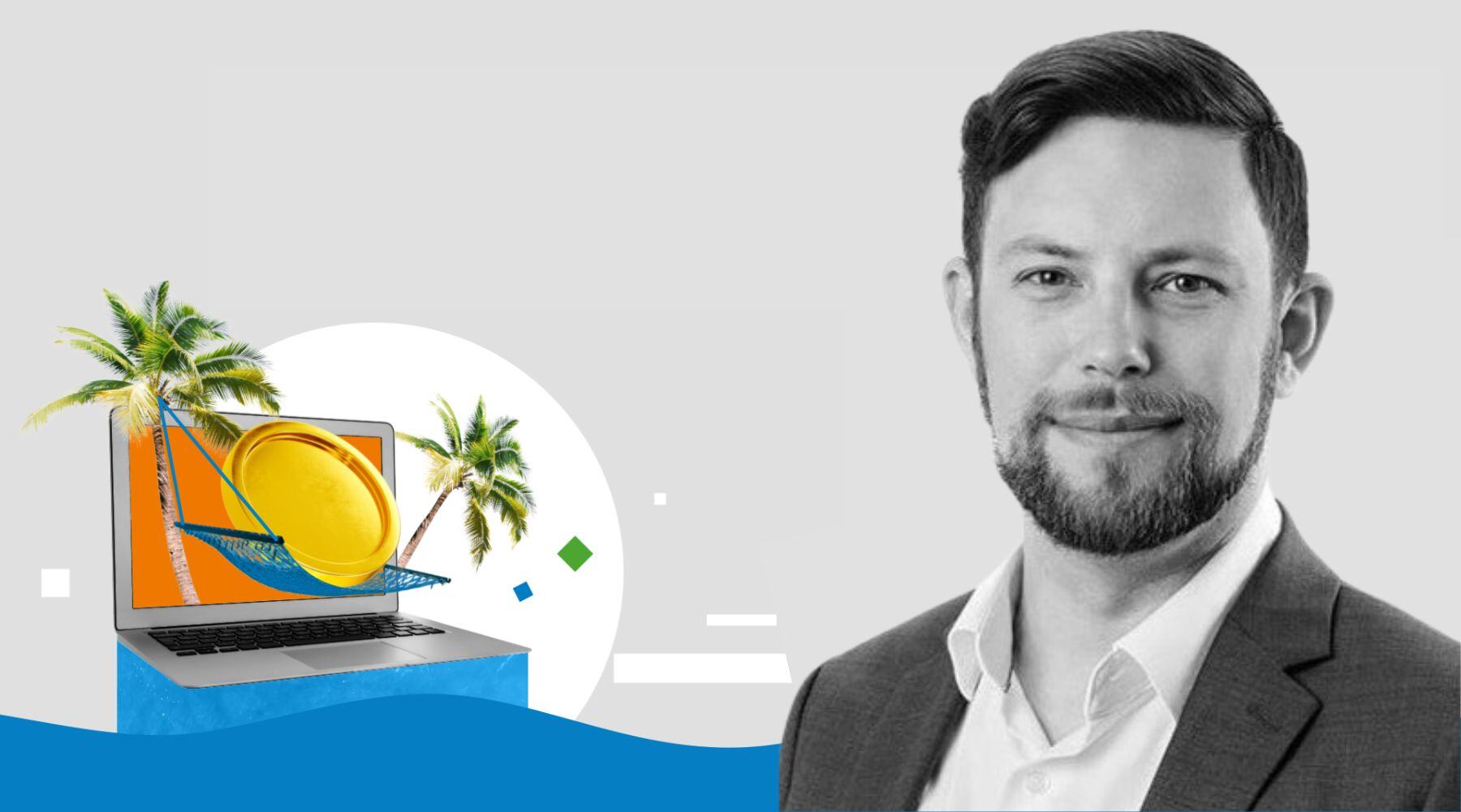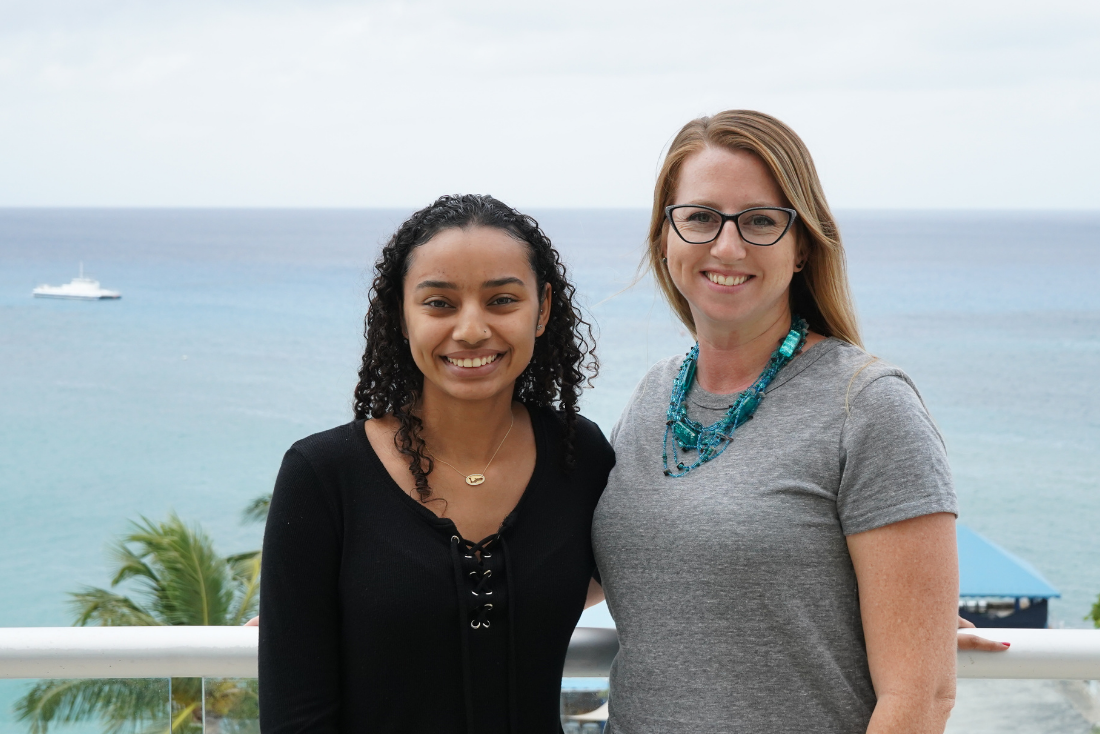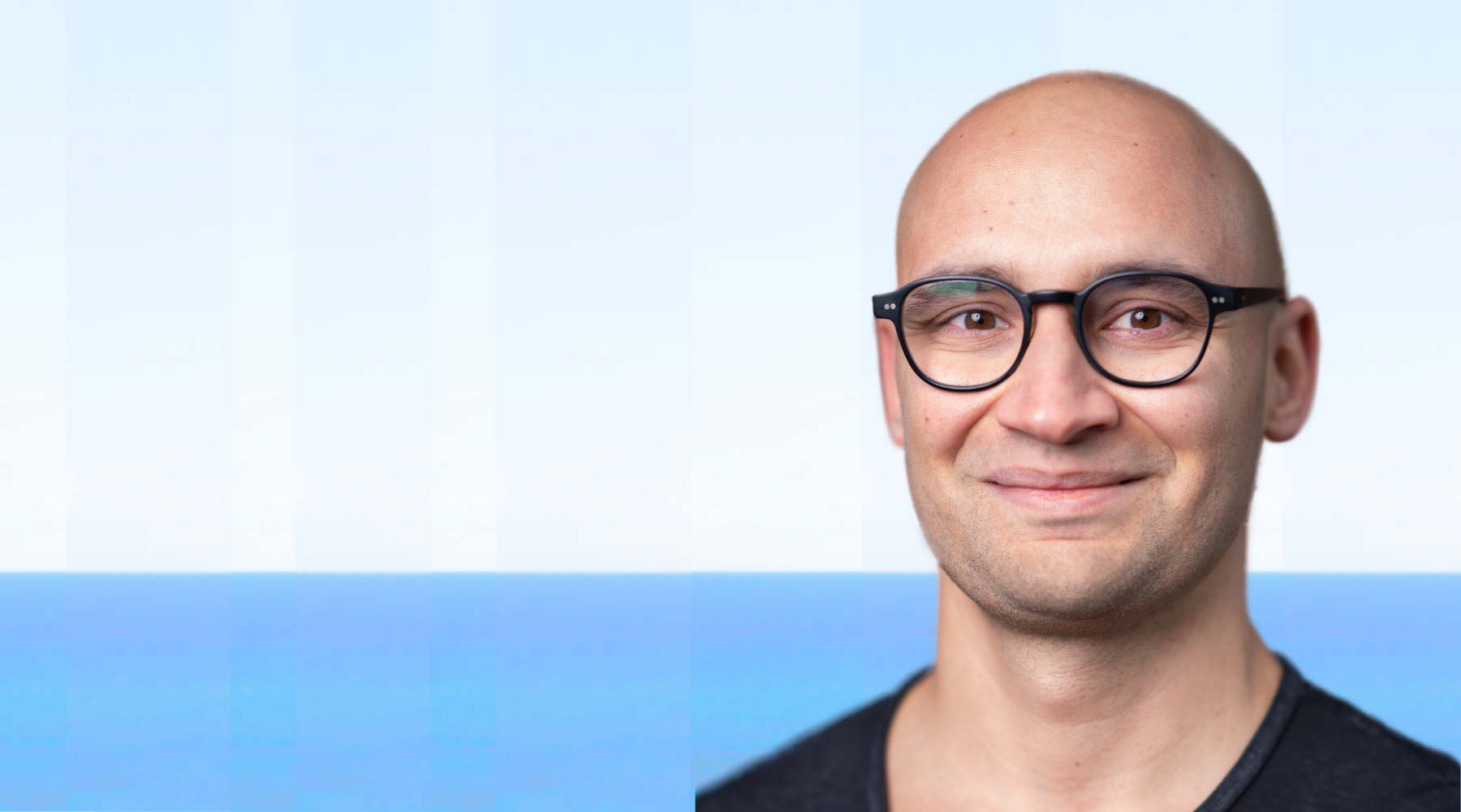.jpg?width=1100&name=Community%20Website%20Image%20TEMPLATE%20(5).jpg)
CareerPoint CEO Steve McIntosh Shares Experience on Career Advancement Coaching In Businesses Right Now
As a career advancement coaching platform specifically designed for all levels of seniority, CareerPoint aims to democratize coaching so that everyone in a company can benefit from it. Sharing his insights from over 17 years in recruitment, we managed to catch up with long-term Cayman resident, Founder and CEO, Steve McIntosh.
CEC: Tell us a little about CareerPoint and where you fit in terms of coaching a business?
SM: Sure, so most people are familiar with leadership and executive coaching, which is at a senior level in the company. However, at CareerPoint, we’re focused on all of the people at the “bottom of the pyramid”, so to speak, which is where most of the value in a company comes from. If you spend all of your time developing great leaders in a business, you’ve still got all of these other people in the organisation who need help to develop professionally and that’s what we strive to do. We want to make career coaching available to everyone and specifically career advancement because that’s what people want.
CEC: What would you say to those who suggest that not everyone wants to advance their career?
SM: I spent 17 years running a recruitment firm, and the big takeaway from those years is that nearly everybody wants career advancement. Sometimes bosses will say, ‘ not everyone wants to advance their career’ but I’ve yet to meet the person they’re talking about. I’ve spoken to companies in the past who believe there’s a lot of people who don’t want to advance and I always wonder what conversation they’ve had with those people. Have they really asked them, or is it an assumption?
To an extent, it depends on the question you’re asking. If the question is “do you want to be promoted?”, maybe the answer is no. Perhaps they don’t want to be promoted within that company, but if you ask whether someone wants to earn more money, I argue most people would say yes to that. And that’s wanting to advance your career because you’re not going to make more money doing the same job at the same level.

CEC: How did you come up with the idea for CareerPoint? Where did it all start?
SM: About 10 years ago I realised t the big difference between the people who are successful and the people who are left behind is not that successful people are super hard working, or super intelligent, or amazing with people, it’s a combination of factors. But the most important one is that they know how to “play the game”.
The skills of the game of career advancement can be taught and learned like any other skill. So, I came up with a system to explain how career advancement works and began presenting it in workshops. For years I did this kind of thing as a passion project, but I realised that this was the part of my job that I loved the most. So, when I decided to move on from recruitment this is what I decided I wanted to spend my time doing; something that could be scaled and have a really positive impact on the world.
CEC: Passionate and doing good in the world is an excellent combination. So, what are you currently working on that you’re really proud of?
SM: The first project that really excites me is that we have a partnership with the University of Oxford to do a groundbreaking study in career advancement. We first spoke to the academic team at Oxford to try and understand what research had been done in the past to understand how career advancement works and, to our surprise, we found that there wasn’t much. And what was done was more focused towards unemployed people returning to the workplace, so it wasn’t applicable to the vast majority of people who are working and want to get ahead.
So, we asked them if they would partner with us to do the research and they agreed. So, we have a nine month study and we’re signing up 20 corporate research partners to work with us. Those corporate research partners nominate between 10 and 50 of their employees to receive our coaching.
Then we do one of our coaching programs with each of the participants and survey them again six months later. What we plan to do is follow them as far along as we can to find out what happens in their careers and whether coaching has had an impact.
CEC: That’s exciting, how far into the process are you currently?
SM: We started in August 2021 so we’re a couple of months in so far. About halfway to our target of study participants and I’m delighted to say that we’ve had a lot of support from the community here in Cayman. A few Cayman companies signed up as well as a lot from North America so it’s underway and going well so far. We won’t have the full results for another nine months but the early results are phenomenal. It’s tremendously validating to see the positive impact of our coaching on a person’s work, studied in real time by a serious academic team.
To give you some specific nuggets from the early data, 93% reported an improvement in knowledge, skills and mindset from the coaching, 64% reported an increase in personal effectiveness and 79% reported an increase in job satisfaction.
CEC: You mentioned a second project you’re excited about, could you tell us more about that?
SM: Yeah, so the second project speaks to our mission of helping young people advance their careers. Part of that for us is to try and level the playing field for historically underrepresented groups which is where a big part of our social purpose comes in. We’ve partnered with a few non-profit organisations and we’re running some pilot programs currently.
How this works is they refer their members to us, and we give them coaching scholarships to receive our coaching for free. We’re hoping to ultimately coach around 1,000 young professionals every year through these non-profit partnerships.
CEC: Wow that’s making a big impact, and an excellent mission. With that in mind, what sorts of changes are you seeing in your industry right now?
SM: I think right now is an interesting time to be in the coaching space because companies are finally waking up to the value of coaching.
I think companies are waking up to the fact that the leaders in the company can't do everything on their own. The conventional ‘wisdom’ has been that for companies to succeed they need amazing leaders, and you read stuff on social media that would convince you that if you’re a wonderful leader that’s all that matters. I don’t buy it personally. We know that people want good leaders, but we also know that people want and need autonomy. But those two things don’t really go together. What most people want isn’t so much great leadership but as little leadership as possible.
CEC: And how does this fit in with CareerPoint’s mission?
SM: Most companies know that they can’t be successful unless their people are successful. We’re working directly with their people to help them create that success from the bottom up.
If you look at anyone who has been successful in life, whether it’s an athlete or a businessperson, they always have a coach. At CareerPoint we’ve decided that the time has come for everyone to have a coach, and we want to try and make it as cost-effective as possible for that to happen.
.jpg?width=1000&name=Blog%20Post%20Pictures%20%26%20Website%20Albums%20(1).jpg)
CEC: You’ve been in Cayman around 20 years now; what made you decide here was the place to set up?
SM: I’ve had conversations about Cayman Enterprise City for a long time and I’ve always believed it’s a huge opportunity for the Cayman Islands and I’ve advocated for it for many years. And when I was CEO of my recruitment firm, we worked quite closely with CEC. We spoke to prospective tenants to help them solve recruitment challenges and tell them about the benefits of being based in the Cayman Islands.
CEC: What advice would you give them?
SM: You know the big question we used to get a lot was, can you tell us about the local talent pool? And I’d always say the best thing about CEC is that the talent pool is the world. Of course you’re going to try to find people locally wherever possible, and the talent pool locally is constantly improving, but if you can’t find it here CEC makes it easy to bring it here.
In Cayman, we have so much to offer anyone from anywhere in the world that it’s actually a great way for a company to set itself apart from the competition. In the war for talent, basing yourself in Cayman means you can not only hire anyone from anywhere, but make a very compelling value proposition to them as an employee. Because moving here you have this fantastic life; weather, there’s no tax, and real short commutes.
It’s the pitch I’ve been making to professional candidates for years and it’s all true. So, I have a long-standing association with CEC, and when I decided to start a tech company in August 2020, it was a no-brainer and I signed right up.
CEC: How did you find the official onboarding process?
SM: Everyone on the team made it easy and supported us. I’m not sure it even took a month, but it was a very easy process to start and keep going. Really straightforward.
CEC: What’s been the most valuable part of CEC for you?
SM: I actually have a home office, so I don’t go there [CEC Offices] very often.
But we’ve used the space for focus groups and when we’ve needed to. One of our staff members is using the space there now and it’s the peace of mind that if we want to scale into offices or we need more space for expanding the office, space is a non-issue. In my previous business getting office space in Cayman when you’re thinking of growing is a big deal! More than two or three extra staff and it’s a six-month project to move and hundreds of thousands of dollars. So for me, to be able to speak to people in the United States and tell them we have space in Cayman it just becomes a question of whether I want to hire them or not. Not, do we have space for them?
CEC: And what is it about the Cayman Islands that has made you stay all of these years?
SM: I think what I love most about the islands has changed over the years. I came from Glasgow in Scotland so initially, when I moved here as a young single guy, it was the warm weather that appealed the most to me.
Over the years the novelty of fine weather has worn off a bit, but nowadays I have a family and my kids are teenagers. Especially when the kids were younger, Cayman is the best place on the planet to raise a family, and I don’t say that lightly. You can’t beat it; it’s safe, there’s plenty for kids to do, there’s no commute.
Not having a commute really becomes a benefit, because rather than wasting hours a day, hundreds of hours a year, commuting you can spend that time with your family. For me, the family life in Cayman is phenomenal, especially how open the community is. I also think the number of activities on offer, because you’re not wasting time commuting, I could play soccer, Gaelic football, touch rugby, hockey, squash, tennis, Taekwondo because all of that was so accessible and close by. You name it, I’ve had a go. Those would be the main things I love about Cayman.
A big thank you to Steve McIntosh for sharing his insights on CareerPoint’s mission, career advancement coaching, and Cayman. If you want to join Steve and set up a physical presence and grow your international business in Cayman, visit our business set-up page to learn more.





.jpg)
